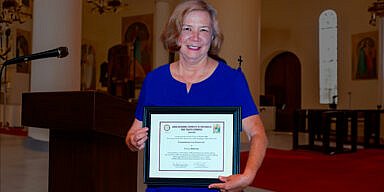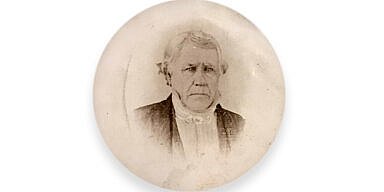Let me start by saying that I have always loved Tom Hanks. He is a fantastic actor with a range possessed by few. From humor in Volunteers, where he met his Greek-Pomak-American wife, Rita Wilson, to the dramas of Saving Private Ryan, Forrest Gump, and the sweetness he brought to Mr. Rogers, he is an American cinematic icon.
Correction, an American and a Greek cinematic icon.
We are all touched by Tom Hanks’ clear devotion to Greece and his Orthodox Christianity. His endorsement of Greece as a “haven” cannot help to have touched us one and all (even though Greece is often less than a haven to its long-struggling citizens). There is no question, further, that the Hanks-Wilson duo has done a great deal in promoting visitors to come to Greece. All of this is more than welcome.
Further, they have assisted in producing two very popular films with Greek themes, first, My Big Fat Greek Wedding, a funny, if stereotypical and schmaltzy version of a Chicago Greek Girl marrying a non-Greek, and Mama Mia, set in the Sporades Islands.
All of this is wonderful but let’s be frank—“Tom your country needs you.”
Greece is fighting a hybrid war against Turkey. It is fought on many fronts—political, economic, diplomatic, cinematic, and historical. It is the last two fronts where your help, influence, and power can be most applicable.
Turkey is a cinematic superpower. The Turkish film industry is well funded and popular globally, particularly in the lands where the Ottoman Empire once held sway. Yes, this includes Balkan Orthodox countries such as Greece and Serbia, who have suffered mightily under the Ottoman yoke. Greeks and Serbs might considerably disagree with the backstories therein, particularly big-budget series such as Suleiman, yet they will watch them, nonetheless. Probably—fingers crossed—they know the real history and have it as another series to flip through.
Not so other peoples.
Turkey has entered the cinematic/historical fray in the United States, with Netflix series highlighting the rise of the Ottoman Empire and the Conquest of Byzantium—on their terms, per their interpretation. They also liberally fund Turkish studies which will again interpret the arc of history in a manner favorable to Turkish interests. This is not even really revisionist history, since there is a deafening silence about Byzantium in popular history and conventional wisdom, and even we successors—Greeks, Serbs, Bulgarians, Romanians, North Macedonians—are conspirators in this silence.
What movie is there about Byzantium and its vast, 1000 year history? Where are the leading men and women in the dramas of an advanced civilization that fought off every comer from east, west, north, and south, for a millennium? Must we wait for the Turks to discuss their destruction of Byzantium or their appropriation of our history just as they appropriated our people as Janissaries?
How about a movie, funded by the Hanks-Wilson duo, to talk about the lives of Cyril and Methodius, two Thessaloniki monks who conquered the souls of the Slavs with an alphabet army, or the innumerable sieges of Constantinople, where this city was the bastion of the West.
How about that last, final siege where the last Byzantine—the last Roman Emperor died sword in hand defending the West, even as the rest of the West betrayed Byzantium? Does such a momentous event—with very real parallels to the present day—not merit a proper cinematic treatment?
Your country—actually both your countries—need you, Tom.
I ask you as a fellow citizen of both countries.




